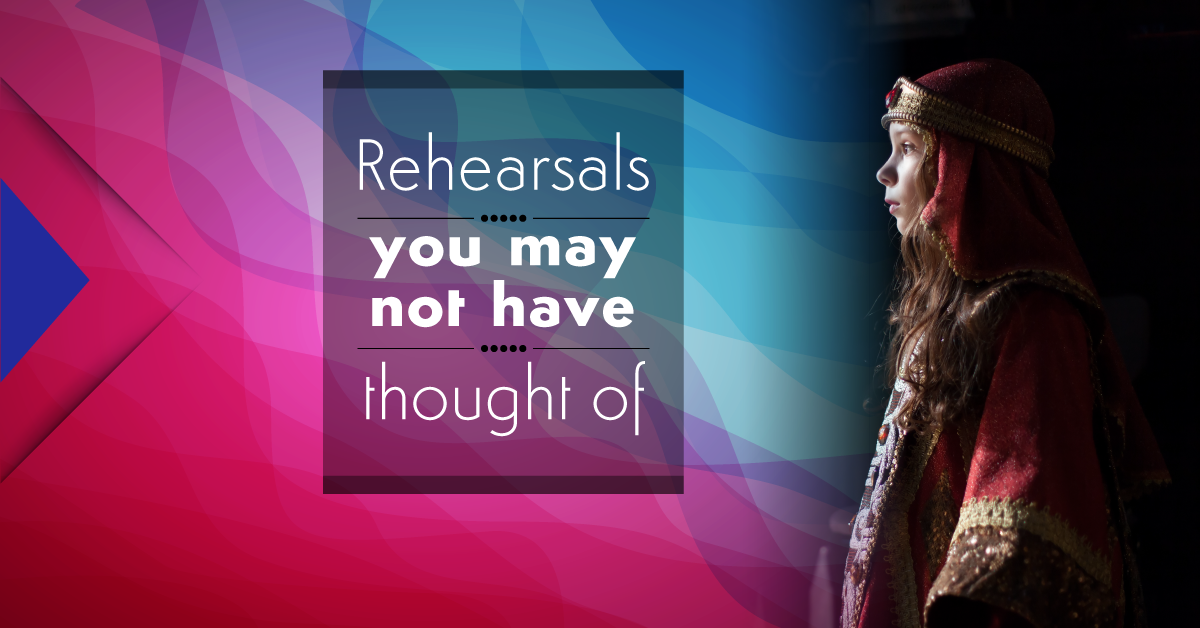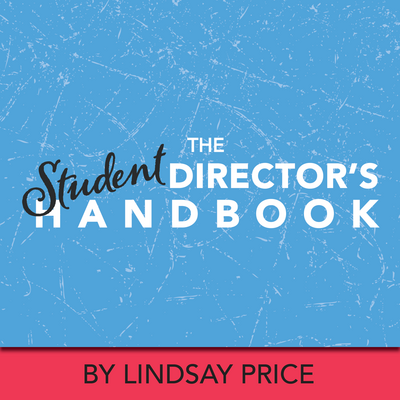You Want Me to Do WHAT Onstage?
Students, imagine this: You’ve been cast into a show that you know is going to be awesome. You’re in the middle of rehearsal, and your director has just asked you to do something really embarrassing. What’s an actor to do?
Here’s a brief anecdote… Back in elementary school, I was cast in a production of The Taming of the Shrew. I vividly remember being really embarrassed to have to squeal in delight and hug the actor playing my husband onstage. It was the squealing that really embarrassed me—I didn’t want people to laugh at me for making a ridiculous noise. Also, I didn’t fully understand why the director wanted me to do it. I did it in rehearsal once or twice, but during the run of the show, I never actually made the noise. Looking back on it, I know now it would have been much better for the scene and for my character if I had actually committed to the direction given to me. But at the time, I was too embarrassed because I thought I’d look and sound silly.
I’m a lot more confident now about looking silly onstage, but of course nobody wants to look foolish. Part of being an actor, however, is learning to really commit 100% to telling the story of the show. That might include doing embarrassing things.
Still embarrassed? Let’s break it down and figure out how to deal.
1. First, figure out why you’re embarrassed.
Re-read the script/scene. Reflect on the directions you’ve been given. What about it is embarrassing to you? Why are you feeling embarrassed? It may be helpful to write out how you’re feeling.
2. Speak up—sooner, rather than later.
Talk to your teacher or director. If it’s something morally, ethically, or safety-related that you have an issue with, you need to talk to your director immediately—preferably before you rehearse the scene. You should never do anything you feel is morally wrong or unsafe onstage. A good director should be able to accommodate your concern and alter or adjust the scene, line, or gesture.
If what you’ve been asked to do is not morally objectionable or unsafe (if it’s just embarrassing to you), then of course, still speak up! If possible, suggest alternative ways of performing the scene. This way, you are bringing solutions to the table, rather than just seeming like you’re complaining.
If your director doesn’t know about your concerns, then they can’t do anything about it. And, if you wait too long to say something, it may be too late to do anything about it. The director may be able to adjust the scene, but be prepared that they may not be able or willing to. You may have to suck it up and do it—or worse, risk being removed from the scene or re-cast altogether.
3. Remember, it’s not “you.”
Actors have to separate themselves from the character they are playing. It’s not “Kerry the person” up on stage, it’s “Sabine” or “Lord Lancaster” or “Bianca.” Your character is the one doing the silly or embarrassing thing. Your friends and family coming to the show are not laughing at YOU, they are laughing at the situation your character is in. Trust that your director can see what you’re doing. Even though it may feel silly or strange, it probably looks really good onstage.
Teachers, this is a good talking point to discuss with your students. Have them make a list of similarities and differences between the student and the character they are playing, and how they might react differently than their character. As an exercise, students could write an alternative version of the scene, where their character reacts in a different way than what is written in the script (thus, coming up with an alternate reaction than what the student is embarrassed about). Click the link below for a reflection.
4. Think about other actors who have had to do silly or embarrassing things onstage or on screen.
Your favourite actors and actresses have all had to do embarrassing things in their various roles, and on much bigger stages or screens (with the whole world watching). They survived. Just think: if they can do it, so can you! Or, talk to older students and your teachers about their experiences onstage. Listen to their stories and learn from them–they’ve been exactly where you are.
5. Above all…be brave.
Actors truly are brave individuals. There are so many people who wouldn’t even dream of walking out on a stage, let alone memorize lines, sing and dance, or have to do something embarrassing. As an actor, you have already made a major achievement by putting yourself out there. So, take the next step, push yourself outside of your comfort zone, trust your director (remember: they can see what you’re doing much more easily than you can), and do your best. Believe me, you will impress everyone with your dedicated performance.
Related Articles
The Student Director's Handbook
by Lindsay Price
Help students take their show from first audition to opening night with The Student Director’s Handbook. This easy-to-use ebook is full of guidelines, tips and templates designed to help students create a vision, circumvent problems and organize rehearsals on their way to a successful production.
The Rehearsal Companion
by Kerry Hishon
You’ve chosen the play, paid the royalties, done the script analysis, held your auditions, and cast the show. Tomorrow is the first rehearsal. Are you ready? Really ready? The Rehearsal Companion can help!
The Drama Classroom Companion
by Lindsay Price & Kerry Hishon
The Drama Classroom Companion is filled with articles and exercises to build the skills needed for theatrical performance as well as real world skills like creative thinking, critical thinking, collaboration, and communication.






